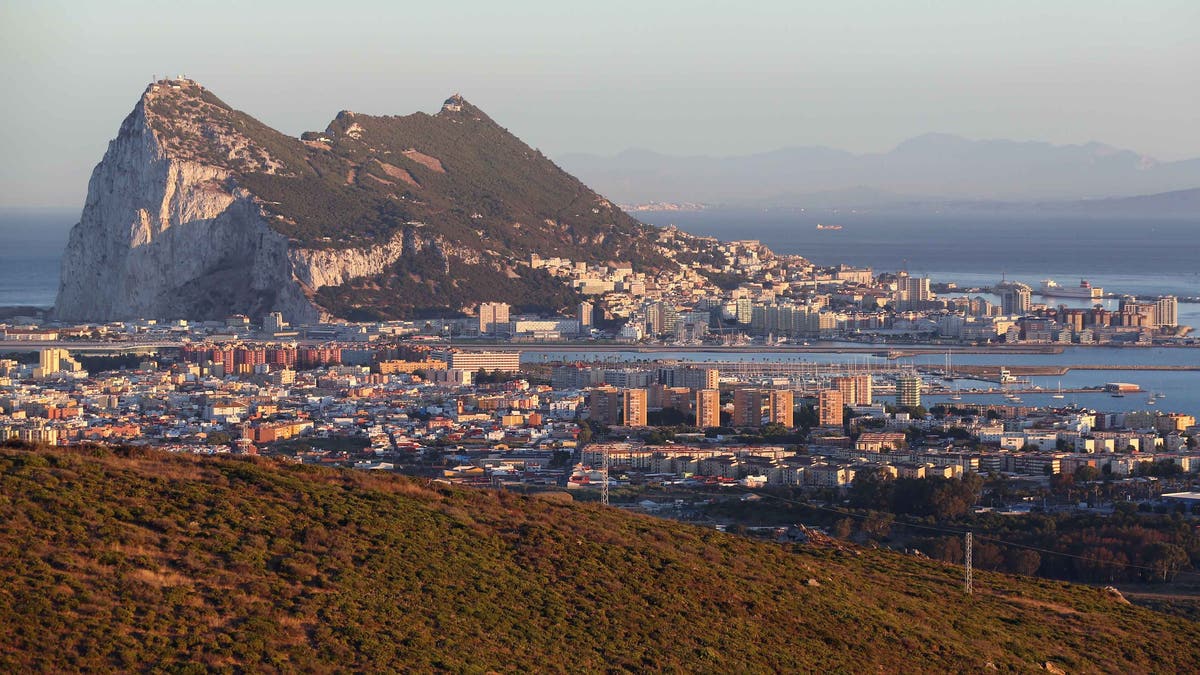
SAN ROQUE, SPAIN - AUGUST 07: The Rock of Gibraltar at dusk on August 7, 2013 in San Roque, Spain. David Cameron and his Spanish counterpart, Mariano Rajoy, Mr Rajoy offered to 'reduce measures' at the Gibraltar border. Tensions between the British and Spanish governments have been raised on issues surrounding the sovereignty of Gibraltar. An increase in Spanish border crossing checks between the Rock and mainland Spain, leading to lengthy queues, is widely considered to be a retaliatory move for the construction of an artificial reef in British waters, which it is claimed has had a negative impact on Spanish fishing vessels in the area. (Photo by Oli Scarff/Getty Images) (2013 Getty Images)
Spain is calling for joint sovereignty of the island of Gibraltar after citizens in the United Kingdom voted on Thursday to leave the European Union.
Spain's acting Foreign Minister José Manuel García-Margallo said that as soon as the EU-UK divorce is completed, EU treaties would no longer apply and Gibraltar would be considered a third country, outside the single market.
He said Spain should then seek for Gibraltar to be excluded from future Britain-EU negotiations and treated as a strictly bilateral issue with Spain.
The 30,000 residents of the British overseas territory overwhelmingly voted to remain in the Union, with 95.9 percent of the vote coming in to stay.
García-Margallo, whose conservative Popular Party runs Spain's caretaker government ahead of repeat elections Sunday, said the Brexit vote, while regrettable, completely changes the panorama regarding Gibraltar.
"The Spanish flag on the Rock is much closer than before," García-Margallo said, according to the BBC.
While Gibraltar has been a British territory since 1713, Spain has continued to claim sovereignty over the island which lies just off the coast from the Iberian Peninsula. Gibraltar, which is situated at the opening of the Mediterranean Sea, is heavily reliant on its shared border with Spain for trade.
"It's a complete change of outlook that opens up new possibilities on Gibraltar not seen for a very long time, García-Margallo said. “I hope the formula of co-sovereignty - to be clear, the Spanish flag on the Rock - is much closer than before."
The so-called Brexit has also left another overseas British territory in a jeopardy as leaders on the the Falkland Islands – located in the Southern Atlantic Ocean off the coast off the coast of Argentina – have predicted “catastrophic consequences” when the U.K. leaves the European Union.
The Falklands, whose sovereignty is a major point of contention between the U.K. and Argentina and even caused a war between the two nations in the early 1980s, relies on the European single market for much of their exports.
The news of the U.K. vote has many European leaders reeling as the move plunged the EU into deep uncertainty, not least over how to negotiate the unprecedented departure of a member state.
Top EU officials tried to put on a brave face as the European enterprise — already wracked by economic woes, Greece's shaky future in the euro and Europe's inability to manage the refugee emergency — came face to face with yet another existential challenge.
As the British pound lost value and with markets jittery, EU leaders underlined that the U.K. must negotiate its exit quickly and warned that it would remain a member, with all the obligations that entails, until the talks are over. That could mean more than two years longer.
The heads of the EU's main institutions said in a statement that they want Britain to act on the vote "as soon as possible, however painful that process may be. Any delay would unnecessarily prolong uncertainty."
The statement was signed by European Council President Donald Tusk, European Commission President Jean-Claude Juncker, European Parliament President Martin Schulz and Dutch Prime Minister Mark Rutte, whose country currently holds the EU's rotating presidency.
They added that under the bloc's treaties "EU law continues to apply to the full to and in the United Kingdom until it is no longer a member."
Tusk told reporters that Britain's 27 partners were "determined to keep our unity." But, he said, "there's no way of predicting all the political consequences of this event."
The Associated Press contributed to this report.
